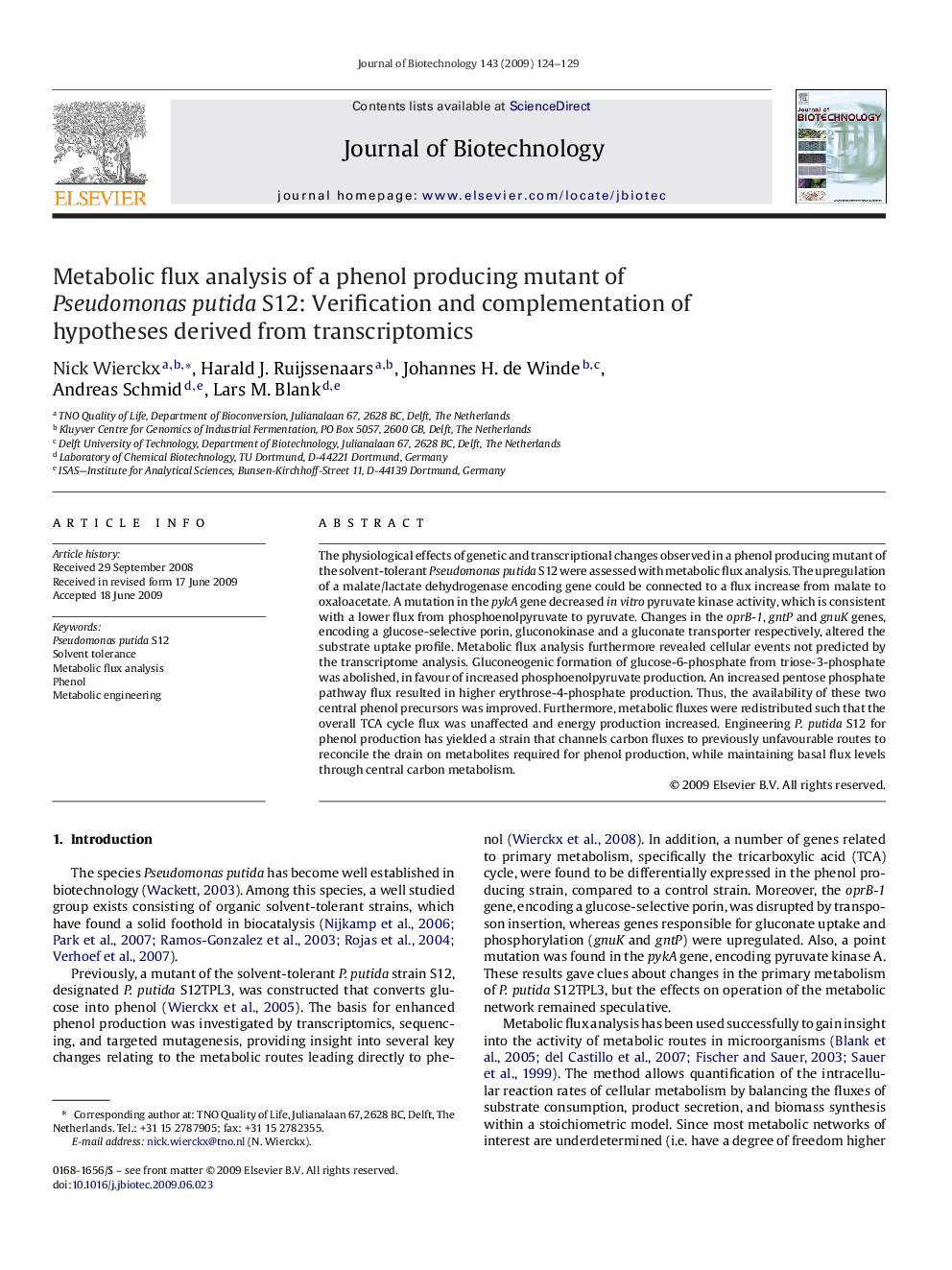| Article ID | Journal | Published Year | Pages | File Type |
|---|---|---|---|---|
| 24599 | Journal of Biotechnology | 2009 | 6 Pages |
The physiological effects of genetic and transcriptional changes observed in a phenol producing mutant of the solvent-tolerant Pseudomonas putida S12 were assessed with metabolic flux analysis. The upregulation of a malate/lactate dehydrogenase encoding gene could be connected to a flux increase from malate to oxaloacetate. A mutation in the pykA gene decreased in vitro pyruvate kinase activity, which is consistent with a lower flux from phosphoenolpyruvate to pyruvate. Changes in the oprB-1, gntP and gnuK genes, encoding a glucose-selective porin, gluconokinase and a gluconate transporter respectively, altered the substrate uptake profile. Metabolic flux analysis furthermore revealed cellular events not predicted by the transcriptome analysis. Gluconeogenic formation of glucose-6-phosphate from triose-3-phosphate was abolished, in favour of increased phosphoenolpyruvate production. An increased pentose phosphate pathway flux resulted in higher erythrose-4-phosphate production. Thus, the availability of these two central phenol precursors was improved. Furthermore, metabolic fluxes were redistributed such that the overall TCA cycle flux was unaffected and energy production increased. Engineering P. putida S12 for phenol production has yielded a strain that channels carbon fluxes to previously unfavourable routes to reconcile the drain on metabolites required for phenol production, while maintaining basal flux levels through central carbon metabolism.
